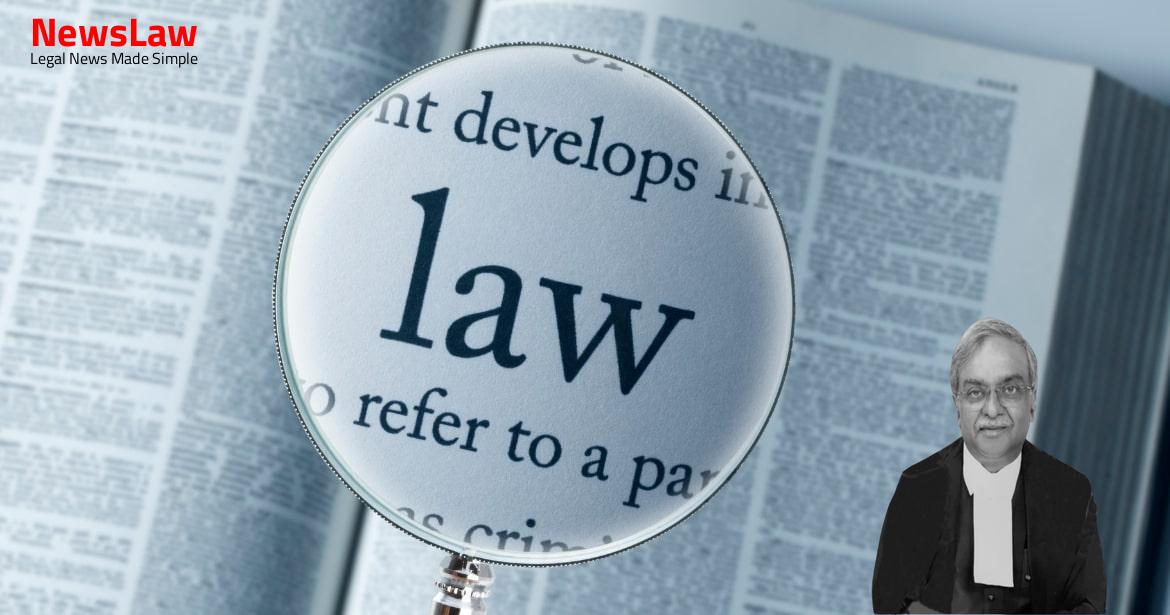The Supreme Court of India recently delivered a significant judgment in the case involving the State of Gujarat and the Union of India, focusing on the health and safety rights of workers. The Court’s directives address the lack of insurance, treatment, compensation, and rehabilitation for victims of occupational diseases such as silicosis. The judgment aims to uphold the constitutional mandate to ensure the well-being of workers and prevent economic exploitation. This legal battle highlights the importance of upholding workers’ rights and ensuring proper measures to protect their health in the workplace.
Facts
- The NHRC recommended compensation to workers affected by Silicosis in Gujarat.
- The Court directed the State of Gujarat to pay Rs 3,00,000/- as compensation to the next of kin of 238 deceased workers.
- The Chief Secretary of Gujarat was instructed to transfer the compensation to the District Collectors of Jhabua and Alirajpur for distribution.
- The State of Madhya Pradesh was directed to detail rehabilitation steps for the 304 affected individuals identified by NHRC.
- The CPCB was impleaded as a party in the case.
- The NHRC submitted a preliminary report on the widespread issue of silicosis affecting workers in various industries.
- The Court directed the State of Gujarat to comply with NHRC’s recommendation by paying Rs 1 lakh to the kin of each deceased worker and depositing the remaining Rs 2 lakhs in fixed deposits.
- The State of Gujarat was instructed to ensure that no silicosis-affected individual was deprived of benefits.
- The 304 workers from Madhya Pradesh working in Gujarat were directed to be given rehabilitation packages by the authorities of Madhya Pradesh.
- The units were directed to be equipped with adequate monitoring facilities as per CPCB Emission Regulation.
- The Court reviewed Additional Affidavit filed by CPCB highlighting non-compliance of 16 out of 30 operational quartz grinding units in Gujarat with statutory mandates.
- CPCB recommended State Pollution Control Board to address deficiencies and ensure compliance with pollution prevention measures.
- Non-compliant units must meet mandatory requirements if they intend to restart, as per the directives.
- CPCB conducted inspection of quartz grinding units in Gujarat, recommending provision of dust extraction systems at potential sources and routing through Air Pollution Control Devices (APCDs).
- District Collectors’ efforts in ensuring compensation to victims’ next of kins were acknowledged by the Court on 23.8.2016.
- SPCB was directed to file an affidavit within four weeks on actions taken based on CPCB recommendations and closing down 14 non-operational units.
Also Read: Interpretation of Drawer Liability: Company vs. Authorized Signatory
Arguments
- The Respondents in this writ petition include: The Union of India, Ministry of Law, Justice and Company Affairs, Ministry of Health and Family Welfare, The State of Haryana, The State of Rajasthan, The State of Gujarat, The State of Delhi, and The Union Territory of Puducherry.
- The Petitioner invokes the Directive Principles of State Policy, particularly Articles 39(e), 42, and 43 of the Constitution of India, which mandate the State to ensure the health and strength of workers, prevent economic exploitation, and provide decent living conditions, wages, and social opportunities for workers.
- The Petitioner organization highlights the lack of insurance, treatment, compensation, and rehabilitation for victims of occupational diseases like silicosis.
Also Read: Land Ownership Dispute: Validity of Sale Deed between Appellant No.1 and Respondent No.1
Analysis
- Various reports from NHRC, CPCB, and DGMS highlighted large-scale environmental law violations in silicosis-affected areas
- NHRC recommended compensation implementation for affected and deceased from silicosis to be followed by all States
- Court directed Director General of Mines Safety and DG-FASLI to conduct a health and safety survey of silicosis-affected workers
- Union of India directed to respond to NHRC reports
- Recommendation for modern protective equipment for workers suffering from occupational diseases
- Direction for compensation payment to affected workmen as per Workmen’s Compensation Act 1923
- Requirement for detailed reports on location, workers, compensation, medical treatment, deaths, and safety measures in silicosis-prone areas
- Strict control measures for dust, heat, noise, and radiation to be implemented and non-compliant industries to face closure
- National Green Tribunal designated to oversee impact of silicosis-prone industries and ensure compliance with Court’s directions
- Appointment of Committee by NIOH for worker safety recommendations
- Environmental standards for preventing silicosis among workers to be strictly implemented in industries
- NHRC survey findings showed lack of meaningful action in prevention and rehabilitation efforts
- Comprehensive medical check-up of all workers in coal-fired thermal power stations by doctors chosen in consultation with trade unions.
- Services of the workers should not be terminated during illness and they should be treated as if on duty.
- Free and comprehensive medical treatment to be provided to all workmen suffering from an occupational disease, ailment, or accident until cured or until death.
Decision
- NGT directed to undertake necessary steps to prevent the spread of silicosis by industries
- Ensuring adequate and swift compensation for affected workers or their next of kin
- Registry to forward all relevant reports and affidavits to NGT and NHRC for effective execution of responsibilities
- Petitioners allowed to approach NGT and NHRC for cooperation in implementing directions
- ESIC and Chief Secretaries of states to adhere to NHRC directions for efficient compensation distribution
- NHRC to oversee compensation process across respective states
Case Title: PEOPLES RIGHTS AND SOCIAL RESEARCH CENTRE (PRASAR) Vs. UNION OF INDIA (2024 INSC 582)
Case Number: W.P.(C) No.-000110-000110 – 2006



